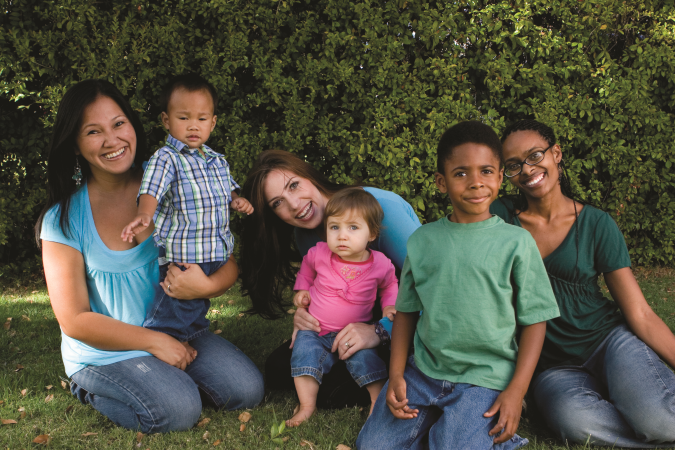July 11, 2023
Four Barriers to Healthy Moms and Children: EveryStep Offers Care and Support

For the majority of Iowans, having a baby and raising children is a challenging experience. Even the most prepared parents can find pregnancy and the early years of childhood stressful. For some Iowans, the experience is much more difficult, as they face adversity and hardship alone.
These are the people EveryStep upholds and enfolds into a community support network.
EveryStep maternal child health director Becky Borgman says her own personal and professional experience is what motivates her each day. “When I first started my nursing career, I was a labor and delivery nurse and I had a supportive partner, supportive family, stable income and transportation. When I had my own baby, I remember being discharged from the hospital and looking at my baby, and thinking, ‘You want me to take her home and do what with her?’ And if I felt like that, start adding some of the barriers that the participants we serve have.”
Learn More About EveryStep's Work in the Community
Becky says there are four primary barriers to healthy pregnancies and children that EveryStep’s clients face:
- Food insecurity – according to Feeding America, 1 in 11 Iowa children face hunger and 40.7% of Iowa households receiving benefits from the Supplemental Nutrition Assistance Program have children.
- Housing insecurity – the National Low Income Housing Coalition found 26% of renter households in Iowa are extremely low income (at or below the poverty guideline or 30% of their area median income) and many spend more than half their income on housing. These households are more likely than other renters to sacrifice other necessities like healthy food or health care to pay rent.
- Transportation – According to MoneyGeek, nearly 2,100 households in Des Moines do not own a vehicle. A lack of reliable transportation makes it difficult to get to health care appointments or buy healthy groceries.
- Language barriers – The U.S. Census Bureau says 8.6% of Iowans do not speak English. Of EveryStep’s clients, up to 50% do not speak English.
“When you start looking at some of those barriers, it's clear how important the education we can bring them and the connection to other community resources are,” says Becky, who says her favorite thing about EveryStep’s groups and classes is that they won’t always be needed. “If we’re doing the job right, they will not need EveryStep forever. But they will always need support and we can give them more opportunities to make connections throughout the community.”
Connect with EveryStep
When a person calls or emails EveryStep for assistance, a case worker reaches out to find the best ways EveryStep can help. “We try to orbit around the client in the most holistic way possible,” says Becky. EveryStep’s programs offer a range of support services, such as free in-home pre- and postnatal visits from nurses, connection to free baby supplies, access to language interpretation services, and assistance from a network of community services.
“We really work to communicate across all teams to best support that client, because you know what they need when we first initially see them might not be what they need in the next few months,” says Becky. “We're looking to best serve the community at our greatest capacity.”
Throughout our existence, humans have survived and thrived in communities. The connections we form with others get us through tough times. But that’s not always easy. Our communities have left many Iowans alone — unconnected and unsupported by the larger social fabric. Parents with young children experience an especially vulnerable stage in life.
EveryStep shows up when people need us most, no matter who they are or what circumstances they face. By offering people the connections, tools and resources they need to be successful parents, we foster a flourishing community.
Give Now
Through EveryStep, you have an opportunity to extend your generosity and compassion to the thousands of Iowans experiencing life’s difficult moments. Donate today to make sure no one falls through the gaps in our community fabric.
If you or someone you know is struggling to find the support they need, please contact EveryStep at 515-558-9946 or complete the commitment-free, confidential Find Care form on EveryStep’s website. EveryStep staff will follow up with a phone call to answer your questions and provide assistance.